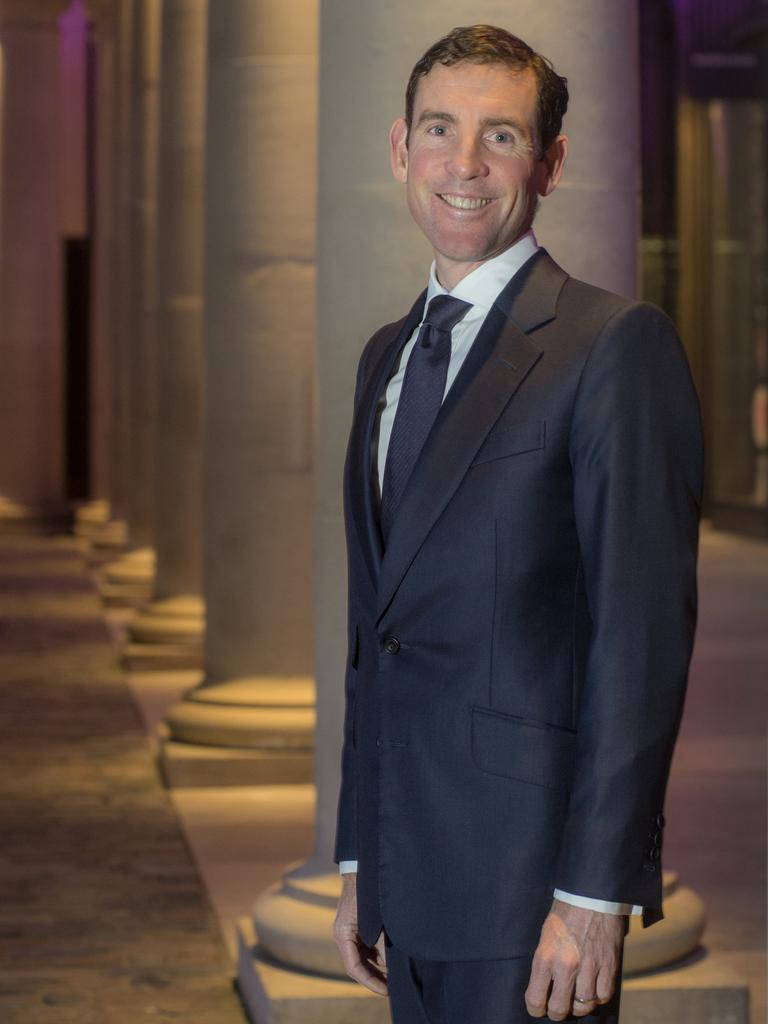Creditors vote to liquidate Greensill
No buyers could be found to carry on Lex Greensill’s Bundaberg-headquartered empire, which collapsed into insolvency last month.

Creditors have voted to wind up Greensill’s Australian business after it attracted no buyers that would carry on Lex Greensill’s Bundaberg-headquartered empire, which collapsed into insolvency last month.
The move formally brings an end to the Australian-grown financier that at its peak spanned four continents and valued as high as $7bn.
The resolution to liquidate Greensill required a majority of creditors by number and by dollar value of debts. Twenty three creditors owed $1.7bn voted in favour of the motion, and none against.
Three creditors, collectively owed $2.96bn, abstained from the vote.
While voting was anonymous, The Australian understands the Association of German Banks, which lodged a contingency claim of up to €2bn ($3.11bn) with Grant Thornton, abstained.
Greensill filed for insolvency last month after it failed to strike a deal to renew its policies with its insurers and Credit Suisse froze $US10bn of investment funds, which Greensill relied as buyers of the debt securities it issued.
It also funded its supply chain financing platform – which involves paying the invoices of a company’s supplier earlier in exchange for a discount from the supplier – by issuing bonds via Greensill Bank.

Liquidation was the only option after no buyers came forward to take on the company, which has debts estimated at $4.9bn.
The latest report from administrators Grant Thornton, issued last week ahead of Thursday’s meeting, says Greensill Capital’s Australian staff should get the $2.2m in entitlements they are owed, but other creditors – including Japan’s SoftBank, owed $1.5bn – would have to wait for the UK administrators until untangle Greensill’s labyrinth financial affairs before they know whether they will receive any cash at all.
Grant Thornton said in the report that Greensill Capital has just $4m in the bank and its four remaining staff are working out of temporary offices as administrators try to sell its sole remaining asset, fintech company Omni, valued at about $26m on Greensill’s books.
The vast majority of Greensill’s $4.9bn in debts relates to a contingent claim by the Association of German Banks, seeking to recover €2bn ($3.1bn) for refunds of depositors in Bremen-based Greensill Bank, also being wound up.
The association’s claim related to the insolvency of Greensill’s German-based bank, which has left small German towns as creditors, with deposits from at least 12 towns across the country totalling €200m.
But individual ‘mum and dad’ depositors are protected under Germany’s Deposit Guarantee Act – which provides compensation up to €100,000, and €500,000 in certain exceptional cases. On March 16, Germany’s financial regulator BaFin, determined compensation was payable to Greensill Bank depositors.

But Grant Thornton said this amount could be reduced if its administrators, which have won a freezing order over Greensill Bank’s Australian assets, recover money from the sale of assets.
Earlier this year German regulators froze the bank’s business, impacting €3.5bn of deposits.
Its UK is also under administration, as its German-based bank, while its US operations have filed for Chapter 11 bankruptcy.
Two SoftBank funds are owed $574 million and $922 million, and the family trust of the brother of founder Lex Greensill, Peter, says it is owed $78 million.
Other creditors of the collapsed supply chain finance company include Credit Suisse, owed $117 million; the sellers of Greensill subsidiary Omni, who are still owed $7.7m; and insurance brokers Marsh which claim to be owed $3.9 million.
Amid regulatory investigations into Greensill’s global business and collapse across multiple jurisdictions, including the UK, Germany and Australia, representatives of the Australian Securities and Investments Commission, the Association of German Banks, and the federal attorney general’s department were also present at the virtual meeting.
ASIC told a Senate estimates hearing in March that it had been investigating Greensill Capital since November.
ASIC deputy chair Karen Chester told the estimates hearing the corporate watchdog was also working with Australia’s prudential regulator to understand whether insurers QBE and Insurance Australia Group, as well as Japan’s Tokio Marine, had significant exposure to Greensill ahead of its collapse.
Responding to questions from members of the Parliamentary Joint Committee on Corporations and Financial Services, ASIC said last week it was working with overseas regulators over its examination of Greensill’s labyrinth of business dealings.
“A number of ASIC teams are involved in this work, examining potential conflicts of interests and accounting and audit related issues, as well as the role played by third-party entities in relation to the Greensill business,” the regulator said.
More Coverage
Originally published as Creditors vote to liquidate Greensill



